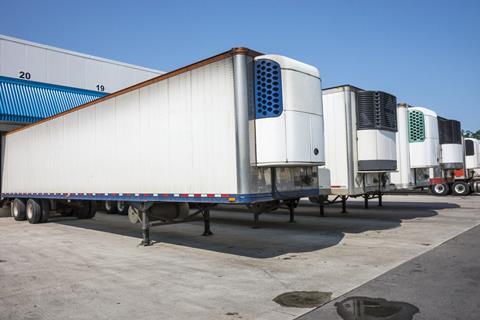Researchers at the University of Nottingham are spearheading a £1 million project to shape the design of hydrogen-powered refrigerated vehicles.

Collaborating with key players in the UK food transport industry, academics from Nottingham University Business School are focusing on identifying obstacles to using hydrogen technology in the food cold chain for sustainable supply and delivery of fresh and frozen products.
Working in conjunction with colleagues from the Faculty of Engineering, the scientists are developing dual-use energy storage technology capable of supplying hydrogen to fuel cells for vehicle propulsion while simultaneously generating cooling for refrigeration.
To gather insights for the engineers’ designs, the researchers conducted interviews with fresh and frozen food logistics companies, supermarkets, and food manufacturers, engaging drivers, logistics and transport managers, fleet managers, and CEOs. Through this process, they uncovered several technical challenges that need to be addressed:
-
Mileage and refueling time: The industry typically covers 600-mile journeys on a single diesel fueling before requiring a refill. For hydrogen-fueled vehicles, initial mileage expectations are around 300 miles, gradually increasing to 600 miles. Refueling time is targeted at 10 to 15 minutes, matching the speed of diesel refueling.
-
Storage capability: Lorry trailers must sustain refrigeration for up to 72 hours independently. Hence, the vehicle design should incorporate a system that continues refrigeration when trailers and tractors are disconnected. This can be achieved by utilizing excess cooling generated during trips.
In addition to technical challenges, the researchers also identified structural hurdles:
-
Refueling infrastructure: With only approximately 15 hydrogen refueling stations currently available in the UK (compared to around 7,000 petrol stations), the limited refueling network poses a risk of vehicles running out of fuel before reaching a station conveniently located along their planned routes.
-
Collaboration: Respondents emphasized that achieving sustainable supply chains requires collaboration within the logistics sector. Companies need to come together to tackle challenges related to decarbonizing the food cold chain effectively.
Furthermore, respondents stressed the lack of a national strategy for the adoption of hydrogen technology and the absence of supportive measures for industry advancement in this area. They expressed the need for government funding, research and development, trials, and the implementation of policies and regulations, as seen with electric vehicles.
Leading the social science aspect of the project are Dr. Suzanne Couloigner and Dr. Robert Cluley. Couloigner, a research associate at Nottingham University Business School, emphasized the importance of consulting end-users to incorporate their requirements into the design process, ensuring that the final product is tailored to their needs.
The University of Nottingham’s initiative holds the potential to make hydrogen power a significant component of the UK’s sustainable energy future and contribute to decarbonizing the country’s food cold chain, responsible for 18% of total energy consumption. The technology aims to target refrigeration operations within the food industry, which account for 30-60% of electricity usage (1.2% of the UK’s total CO2 emissions).
By reducing dependence on imported energy and accelerating the adoption of hydrogen fuel cells for heavy goods vehicles (HGVs), successful implementation of this technology can enhance operational efficiency and reduce commercial operating costs, thus bolstering the UK’s economic competitiveness.
The three-year project, funded by the Engineering and Physical Sciences Research Council, has three primary objectives: formulating and validating a new intermetallic alloy suitable for dual-use hydrogen storage systems, designing and developing a prototype based on this alloy, and surveying key operators in the UK food transport industry to identify barriers to decarbonization using hydrogen technology.


















